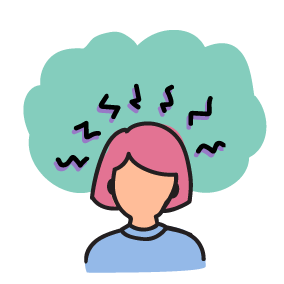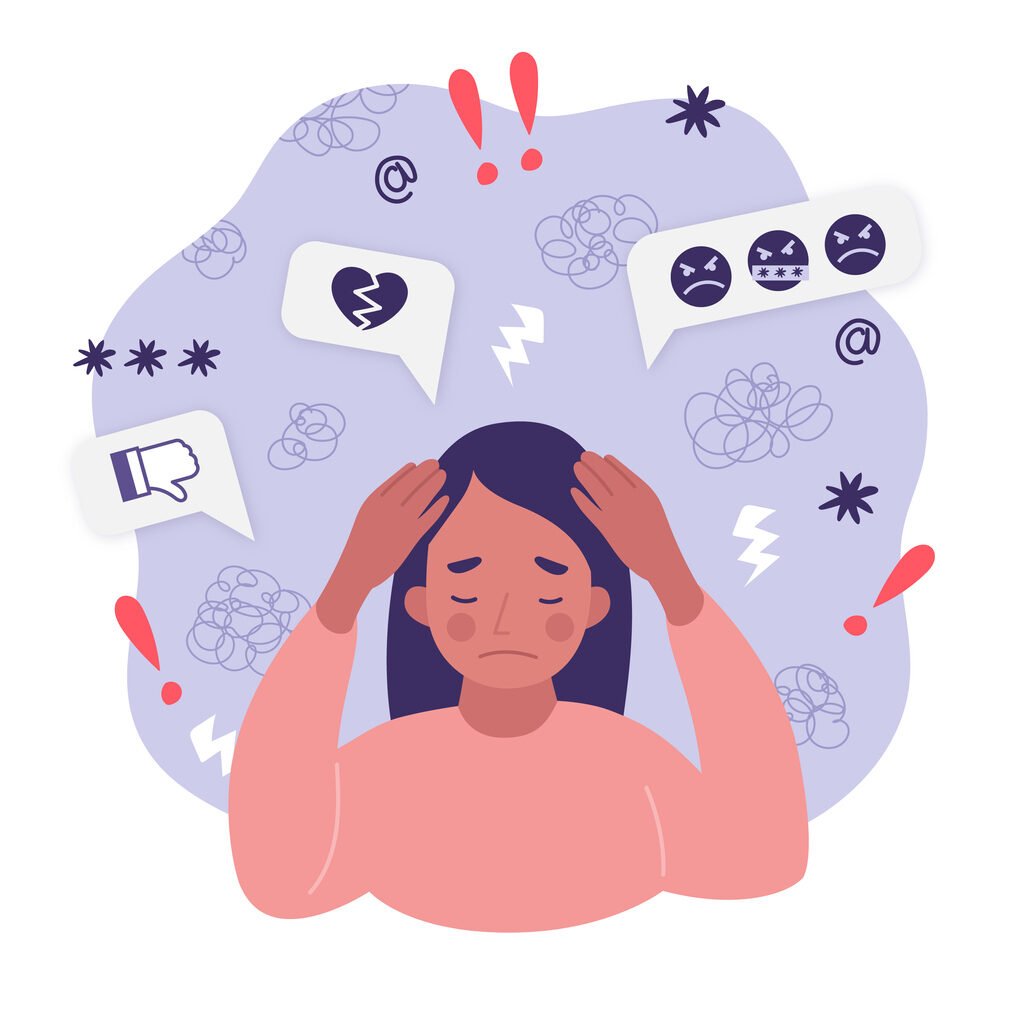Are you feeling overwhelmed by your work or personal life? Are you struggling to cope with the demands of your daily routine? If so, you might be experiencing what is known as “perceived stress.” In this article, we will provide a comprehensive guide on this type of stress, its causes, and how to overcome it. So whether you are experiencing high levels of stress daily or just feel like you are constantly under pressure, read on to learn what you can do to improve your situation!
Contents
What is Perceived Stress?

Perceived stress refers to the perceived intensity of a stressor as opposed to its actual intensity. This means that how a person perceives a situation can be different from how the situation is. For example, a person may perceive a challenging task as being more stressful than it is. This can lead to anxiety or other negative effects.
Many factors can contribute to how someone perceives a stressor. These include:
-Personal characteristics, such as personality traits or mood swings
-The context of the situation (for example, if the person is in an unfamiliar or dangerous place)
– Previous experiences with similar situations
– Psychology (for example, attribution bias)
Causes of Perceived Stress
Perceived stress is a feeling of pressure or stress that we experience on a day-to-day basis. It can come from a lot of different things, some of which are unavoidable and some that we can control. If you’re struggling with feeling stressed out, there are probably a few things going on in your life that are contributing to this. In this blog post, we’ll be discussing the causes of perceived stress and how you can start to address them.
There are a few different factors that can contribute to feeling stressed out daily. The most common sources of perceived stress are relationships, work, and personal responsibilities.
Relationships: One of the biggest contributors to perceived stress in our lives is our relationship with others. When we feel overwhelmed by the demands of our relationships, we end up feeling stressed out. This is because relationships are constantly changing and evolving, which can be tough to deal with if we don’t have the skills necessary to manage these changes. If you’re struggling with managing your relationships, it might be helpful to seek professional help.
Work: Another big contributor to perceived stress is work. When we feel like we’re under constant pressure, it leads to tension and agitation at work. Work can be challenging, but it’s important to remember that there is always room for improvement. If you’re feeling overwhelmed by your work, it might be a good idea to take some time off and reassess your goals.
Personal Responsibilities: Another big contributor to perceived stress is our responsibilities. When we feel like we have a lot of obligations and responsibilities on our plate, we end up feeling stressed out. This is because these types of tasks are difficult to manage on our own. If you’re struggling with managing your responsibilities, it might be helpful to seek professional help.
Social media: Social media can be a really helpful tool when it comes to connecting with friends and family, but it can also be a source of undue stress. When we’re constantly checking our social media accounts, we’re not giving ourselves enough time to relax and refresh. This type of stimulation can lead to feelings of anxiety and stress. If you’re struggling with feeling stressed out, it might be helpful to take some time off and disconnect from social media completely.
The Effects of Stress on the Brain and Body

Stress is a powerful word. It can conjure up feelings of anxiety, dread, and even panic in most people. But what exactly is stress, and what are its effects on the body and brain?
Stress is simply a reaction to an unexpected event or challenge. When we perceive a stressful situation, our bodies release hormones called adrenaline and cortisol. Adrenaline helps us mobilize our energy for action, and cortisol helps us cope with stress by releasing glucose from the liver. Neither hormone is good in long-term exposure; both can wear down our immune systems, increase inflammation, and promote disease.
But stress isn’t just bad for our health in the short term – it also has negative effects on our mental health over the long term as well. Stressed individuals are more likely to suffer from anxiety and depression, two major mental health conditions. And chronic stress may lead to serious physical health problems too – like heart disease, stroke, and diabetes.
Some of these negative impacts can are:
Relationship Issues
One of the main effects of stress is on our relationships. When we’re stressed, we’re more likely to be defensive and critical of our partners. We may also become less communicative, which can lead to problems in the relationship.
Work Performance
Stressed employees are often less productive both at work and at home. They’re more likely to experience burnout, which is a condition where they feel exhausted after working a normal amount of hours. And when employees are stressed, they’re also less likely to take initiative or contribute creative ideas.
Weight Gain
When we’re stressed, we tend to eat more junk food and fewer healthy foods. We may also drink more alcohol or caffeine, which will all add up over time and lead to weight gain.
Physical Health Problems
Chronic stress can lead to several physical health problems, including heart disease, stroke, diabetes, and even depression. In addition, chronic stress can make it harder for you to recover from injuries or illnesses – which can put your life at risk.
Mental Health Issues
Another major effect of stress is on our mental health. Stressed individuals are more likely to suffer from anxiety and depression, two major mental health conditions. And chronic stress may lead to serious physical health problems too – like heart disease, stroke, and diabetes.
What Is Perceived Stress Scale?
The Perceived Stress Scale (PSS) is a self-report measure of perceived stress. It was designed to be administered in the lab or at home and has been used to study stress in a variety of populations.
The PSS consists of 21 items, each rated on a 5-point scale from 0 (not at all) to 4 (extremely). The total score for the PSS is the sum of the scores for each item.
The PSS has been found to have good psychometric properties, meaning that it is reliable and valid. It is as reliable as other self-report measures of stress, such as the State-Trait Anxiety Inventory (STAI) and the Center for Epidemiologic Studies Depression Scale (CES-D).
The PSS has also been found to be predictive of various outcomes, such as physical health complaints, mental health problems, and job satisfaction. This suggests that the PSS may be useful for studying the effects of stress on health and well-being.
How To Deal With Perceived Stress?

Tips for Reducing Perceived Stress
There is no one-size-fits-all answer to reducing perceived stress, as the level of stress you experience will vary depending on factors such as your age, lifestyle, and personal circumstances. However, some tips for reducing perceived stress can be useful in most cases.
Take stock of your current situation
Identify the sources of stress in your life and chart a path to reducing or eliminating those sources. Make a plan and stick to it. When you have a better idea of what’s causing you stress and how to manage it, you’ll be more relaxed and able to focus on other tasks.
Stay active
Regular exercise has been shown to reduce stress levels and improve overall health. Even a short walk can provide significant benefits. Find an activity that interests you and stick with it, even if it’s difficult at first.
Set goals
Creating specific goals can help you focus on what’s important and reduce the feeling of being overwhelmed. Be realistic about your achievable goals, but don’t hesitate to explore new avenues or take on new challenges.
Take care of yourself
When you’re stressed, it’s easy to neglect your physical well-being. Eat a balanced diet, get enough sleep, and avoid drinking alcohol or caffeine late in the day. Taking care of yourself will not only reduce the amount of stress you experience but also make you feel more refreshed and energetic for the remainder of your day.
Try yoga
Yoga is a great way to reduce stress and improve your mental health. It’s based on the idea that regular exercise can reduce anxiety and depression, improve flexibility and balance, and increase strength and endurance.
Conclusion
Perceived stress can be a real pain for people and can lead to health problems such as obesity, heart disease, anxiety, and depression. In this comprehensive guide, we took a look at perceived stress, its different types, how it manifests itself in the body, and how you can reduce or eliminate it from your life. So whether you are experiencing mild or intense levels of stress, learn about the best ways to manage and overcome it.
Hope this article was of help to you! If you are suffering from mental health disorders, you may seek help from Therapy Mantra. We have a team of highly trained and experienced therapists who can provide you with the tools and skills necessary for overcoming mental health disorders. Contact us today to schedule an online therapy or download our free Android or iOS app for more information.


